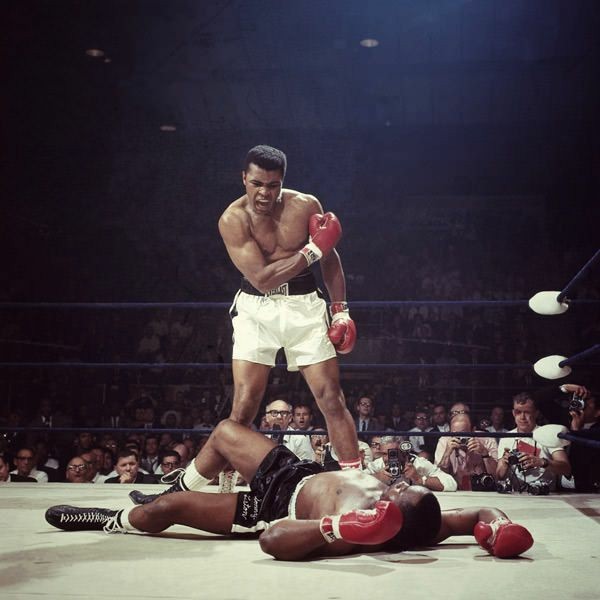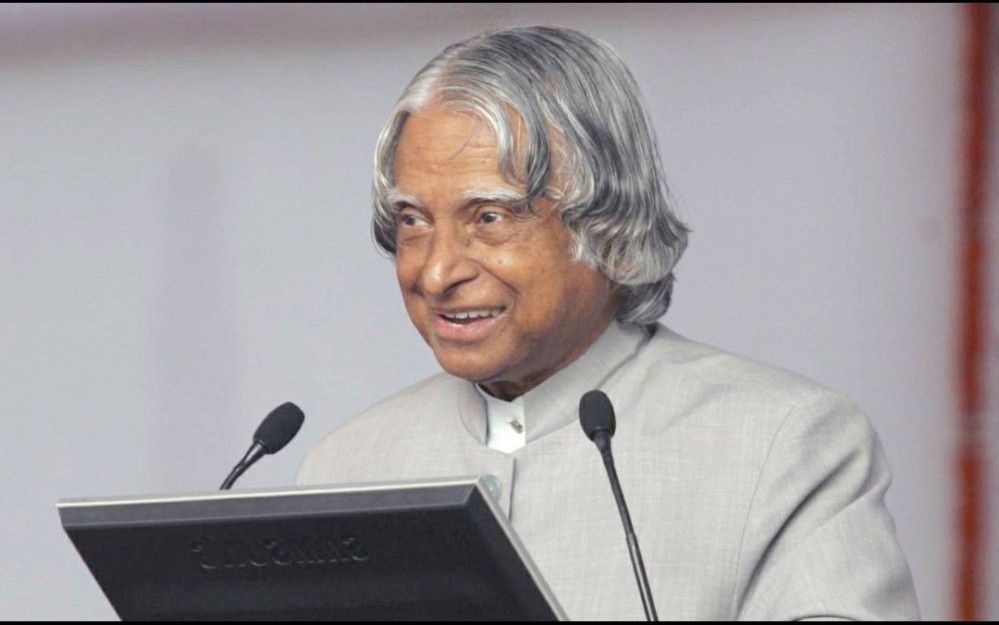On 6 September 2018, the Court ruled unanimously in Navtej Singh Johar v. Union of India that Section 377 was unconstitutional “in so far as it criminalizes consensual sexual conduct between adults of the same sex”. This was a huge step forward for not just the LGBTQ movement in India, but in the fight for human rights in the biggest democracy in the world.
So before we get to the interview itself, a quick background for those who do not quite understand what the fuss was all about. Section 377 of the Indian Penal Code is a section of the Indian Penal Code introduced in 1861 during the British rule of India. It is used to criminalize sexual activities “against the order of nature”. On 6 September 2018, the Supreme Court of India decided to announce that the application of Section 377 to consensual homosexual sex between adults was unconstitutional, “irrational, indefensible and manifestly arbitrary”, but that Section 377 remains in force relating to sex with minors, non-consensual sexual acts, and bestiality. So a law which infringed upon the very fundamental truth about the LGBTQ community and made them criminals for simply being who they were meant to be, was struck down.
Now about our guest for this interview. Bindumadhav Khire is one of the most prominent gay rights activists in Maharashtra. He has dedicated his life to the LGBTQ cause and remains at the forefront of the battle for LGBTQ causes. In addition to that, TEDxPICT had the honor of having him as one of our speakers at the 2017 event. And now, we begin with our interview.
Interviewer: Before we start, may I say how delighted we are to hear from you once again.
Bindumadhav Khire: Its a pleasure to be here.
Interviewer: Tell us what your experience of talking at TEDxPICT last year was like?
BK : I enjoyed it very much and I’m very thankful to the team, especially Saunved, Sharvari ,Neha and the team have been very supportive. They have taken a lot of pain in rehearsals and they really went up their way to make sure that they read the drafts, gave the suggestions and improve the scripts and also helped me for my first time in TEDx. They helped me rehearse and also gave me very good suggestions so I’m very thankful to them for giving me that.
Interviewer: Okay, and any event of the Samapathik Trust that you would like to bring attention to?
Mr. Bindumadhav: Well most probably we will have our International film festival “Advait” on 6th of October but we will know that only by about 25th of September because we have sent a file for processing to the Information and Broadcasting ministry, Delhi and they will hopefully respond to us by 25th of September. Once that happens we will start with the promotion. We have our Maharashtra’s first Marathi LGBT Sahitya Sammelan fest on the 25th of November in Pune. We will be celebrating the victory of 377 on Tuesday which is also our 17th anniversary at Sudarshan Rangamanch in the evening by keeping a stand-up comedy performance and lastly we are working on a manual for corporates for LGBT people at the work place and conference for it in October where we will invite about 2 dozen representatives from corporate backgrounds and ask them to formulate LGBT policies, so the next three months are totally packed for us.
Interviewer: That’s really nice to hear. So let’s turn our discussion towards the historic ruling regarding the Section 377. So what was your immediate reaction to the news about the SC’s verdict on this?
BK: It was expected so it was not surprising because we followed the Aadhar judgement by the Supreme Court because there was a verdict stating the right to privacy as one of the fundamental rights because the Constitution does not state right to privacy of the fundamental rights under the article 21 that no one will be deprived of their personal liberty. So once that statement was given there were two judges who were also on this bench; Justice Nariman and Justice Chandresh on the right to privacy case panel and both of them clearly stated why the 377 judgement is wrong and why it should not stand under the privacy judgement and they were very clear that it was just the matter of time but the only concern was how soon, although we got it much sooner then we expected it. The hearings were also very quickly done because the Hon. CJI of India Mr. Mishra is retiring on 1st of October so they had to rush the ruling, meaning it was done very speedily and I’m thankful to the judges. There was the matter of how strong a precedent it was setting, but it is a strong precedent because all the decisions were unanimous in their entirety, but this ratio was 5:0 and it became very strong judgement. It is a strong judgement because it lays a very strong foundation of human rights. As it is a 500 page judgement it would take a week to read the entire judgement, so by reading the highlight of the judgement what I see is the quotes have been very inclusive and sensitive and even mentions the history of LGBTQ community, in a very apologetic and consolatory manner. So I would consider it to be one of the greatest judgements written since independence.
Interviewer: What do you think of the role that the right to privacy played in this judgement?
BK: Looking at the High Court judgement we were sure that Supreme Court would accept the petition but without Aadhar judgement of privacy I’m really not sure things would have been in our favor or not and there were still 50% chance we would have still lost.
Interviewer: So you put down this judgement more towards the result of the Aadhar judgement rather than a changing of perception by Supreme Court regarding homosexuality?
BK: No, let me revert that, I think that there are quite a few Supreme Court judges who perhaps have felt that the judgement given by the Supreme Court was not in keeping with the relative progress made in the scenario and it was regressive. So the fact that Supreme Court was not accepting was that we need to be more active in proving such things and the Aadhar act helped in the previous judgement. The court has shown that it can be flexible and that it takes a lot of courage to say that I don’t agree with the previous judgement and we need to set that right. So they used this opportunity at the earliest possible chance to undo that damage so it shows the strength of the judiciary and their sensitivity to the issue.
Interviewer: Yes, and that was very surprising to be honest because the supreme court said that the 2000 ruling was arbitrary and it also showed that history owed an apology to the LGBTQ members and their families.
BK: Yes.
Interviewer: What did you actually feel is the contrast between this judgement and the judgement passed in 2009 by the Delhi High Court?
BK: The Delhi High Court had a more discernible judgement as compared to this judgement although I have not read this judgement in its entirety. I would say that the landmark judgement was the 2009 judgement because it did not have the privacy judgement to guide its case forward. It built its case entirely on the human rights aspect, while referring a study about how LGBT rights and human rights have evolved over the world and it used those as a fundamental basis. So without having even the Aadhar judgement supporting it, the verdict entirely on its own is remarkable and we’re very lucky to have Justice A P Shah and Justice Murlidhar with us. Justice A P Shah has a record of outstanding work in human rights cases.
Interviewer: But don’t you think it is a bit surprising considering the drama which had been caused by the on goings in the Supreme Court?
BK: How so?
Interviewer: Because there was a lot of the chaos not too long ago, regarding the actions of the Chief Justice with three judges calling the now infamous press conference.
BK: That has nothing to do with this, the issue was regarding the bench allocation of the Chief Justice but there were other scholars to resolve this and there were some differences but it has nothing to do with the 377 case. The question was who is going to hear the case and you could always argue over the judges but at the end the Chief Justice has the right to take this decision. The argument can also be over allocation but for us this was not the issue and there were some talks regarding taking action against the Chief Justice but that did not work out and I’m not concerned about these issues and I was only concerned about the case and the fact was that we were given a fair hearing without any prejudices regarding this issue which could have hampered us.
“I think these issues are not really concerned with this. The bench that the Chief Justice has the right to set up, he did set up. And I don’t think that anybody has any right to criticize that the body was purposefully set up and did the thing. I think the people have very little faith in our system and that’s why these kinds of things turn up at certain times. But I think I have far more faith in the judiciary than most people.”
Interviewer: If someone had told you 17 or 18 years ago, that the section 377 would be reformed under a BJP government, then what would have been your reaction?
BK: First of all, when I had started my work I had never thought that section 377 would be going in my lifetime. (Smiling). So this is a bonus for me. And the second thing is I don’t know why people are linking this section 377 with the government of the day. I mean had the parliament passed any amendment to strike down the part concerning homosexual acts in section 377 then yes, that would have been a shock! But why the media is portraying the news as if the SC is controlled by the BJP is beyond me. And that the judicial decisions are also controlled by the BJP! The thing is that the media portrays as if the judiciary is dictated by the government and has its strings pulled by them! And I think it is shameful if they think that the judiciary has no sovereignty and independence whatsoever. So I refuse to entertain the belief of people and the media who think the BJP government has brought a paradigm shift. I trust the judiciary despite the mistakes they have made. I don’t deny that criminalization of LGBTQ was a mistake, and also don’t deny the fact that the judiciary doesn’t make mistakes, but whatever it does, it still is a sovereign body. While doing this, I think we are doubting the integral character of the judicial body. And that is horrible and as a lawyer, I don’t accept and support the mockery of the judiciary.
Interviewer: What do you know about the background that lead to the litigation being filed in the SC? The petition against 377.
BK: Firstly, it was filed in 2001 after one transgender claimed that she and her colleagues’ rights have been violated. Mr Navtej Singh Johar filled another petition in 2016. Soon afterwards, Keshav Suri then filled up the petition. We activists filled up one petition. But they rejected our petition and immediately started hearing as no time was left.
Interviewer: Can you elaborate more about the petition that Mr Johar was involved in which eventually stirred the pot?
BK: He is a renowned classical dancer and winner of Sangeet Natak Academy Award, who petitioned the Supreme Court along with his partner of 25 years and said that Section 377 violated the right to life and personal liberty guaranteed by the constitution.
Interviewer: What mainly happened regarding the 2001 PIL and Section 377?
BK: There were 5 people who made petition. The PIL was issued by Naz foundation and a bunch of other petitioners stating we are gay men who are directly affected by the article. So the PIL was filled under the article 32 for violating the fundamental rights. So that was the main difference between 2001’s PIL and article 32 petition.
Interviewer- What was the reaction of the people around you? The people you were dealing with face to face? What did the ruling mean to them?
BK: The difference the younger generation felt was that they could gather courage and come out. They were deprived in the thinking of their parents and their relatives if they are happy about their truth or not! So for accepting them, at least the legal hurdles are no longer in place.
The second thing that it eliminated were the chances of getting blackmailed and getting extorted. There are more chances of getting blackmailed if the victim showed up in front of the police and they will get under the bar for violating Section 377. So there are no chances of such unsavory things to happen. And I think the most important thing that will come to light are the social problems that LGBTQ people are facing. Problems in adopting a baby, gay marriage or let us say problems in getting a job, education, a house in housing societies etc.
Interviewer: So is this a sign of better things to come, or is this just a temporary glimmer of hope?
BK: No, I don’t think this is a temporary thing because I don’t think overthrowing this kind of a judgment would be easy. So this is more or less permanent, or as permanent as it can get anyway. I think we will succeed with the court stating that we should be treated as equals. So what that literally means is that you will accept me as I am with my sexuality. Now if you are going to accept me as one of you, it means that all the laws, rights and obligations that you have are also applicable for me, which means that every right you have, is something that I am entitled to as well. The main opposition is going to be from the religious orthodoxy because of the personal laws being separate from other laws. This means that the use of the word ‘marriage’ will throw everything in a tiff. But personally as an activist I do not really care whether you call my living with a man or my being committed to my boyfriend as a marriage, as long as we have a mutual civil union of two partners under the Partnerships act, which provides me with the same protections as it does to heterosexual couples. I don’t mind the religious outrage then. But that is just my opinion. I know there are other LBGT couples who are very religious, and who may want the Hindu Marriage Act amended or something like that.
Interviewer: And do you think this ruling will have further impact on the acceptance or inclusion that might be a result of this?
BK: Yeah, absolutely, which is why we’re working on a manual when the corporation started approaching us stating they would like to work on LGBT inclusivity and whether we would be able to help them, and that’s what we are trying to do. It will also help foreigners come here and work because in the past, gay people couldn’t come here because their relationship would be not legal. But with that out of the way, the workplace would be more open to having people from the LGBT community, making it more inclusive. So all in all, we would be seeing some very good changes.
Interviewer: So what you are saying is that not only does this ruling impact the society, but also in the corporate workplaces it will have a tremendous impact?
BK: Absolutely. Right now we are preparing the manual for the inclusivity concept. We are also lending a thought to how it may be implemented in the corporate world – what challenges they face and so on. We may have a conference to disseminate that and so that they can understand, think about this issue and support people of the community. So that is what the plan is for the next three months or so is looking like right now.
Interviewer: Okay. Is there any other message of hope that you would like to give to the LGBTQ community?
BK: There is only a message of hope, there is nothing else to give. It will take time, it always does. Any righteous endeavor is a test of patience, moral strength and resolve. We did suffer a setback in 2013, but in the end we did win. I’ve seen people saying, “ye India me nahi ho sakta” and people who can afford to do it are running away abroad – this is not the situation now. Stay strong. It will take time but as long as we’re together, eventually we will win. The more people come out, the more people both straight and gay stand together in solidarity, I’m optimistic we will win. The only thing is we should have patience. We can’t have laws protecting gay marriage or gay adoptions overnight. It may take at least a decade. But that’s what life is, we can’t get everything on the same day but regardless, I am full of hope.
Interviewer: What do you think the impact on the younger generation of the LGBT community is going to be?
BK: I am sure they now have lesser reasons to stay in the closet, more reasons to be confident – the law is on their side. They have to develop that judgment and sensitivity about their identity and their rights. Now it is up to them whether they want to come out or not.
Interviewer: Do you think more people will come out as a result of this?
BK: I do.
Interviewer: Do you also think that more support institutions, even at the grassroots levels, regarding LGBT awareness will come up?
Bindhumadhav: That is something we have to work on. Fighting battles in the court is one thing. Fighting battles in the parliament is another thing. But to bring about changes at the grassroots level, a lot of sensitization and awareness work must happen. I think the LGBT community has failed to reach out to the grassroots level – villages and towns. If they want to succeed, they should work with all people even in their own regional languages and not just English. Create literature in that language, for that may help them reach out to more people. Unless, they do this, winning battles in the Supreme Court and the parliament is not going to change anything.
Interviewer: Do you also think that this decision will have a huge impact on the Maharashtra scene of the LGBT outreach program?
Bindhumadhav: Yes. All over India, in fact.
Interviewer: So there won’t be a disparity, state-wise? For example in Kerala, versus Punjab for example?
Bindhumadhav: No, there won’t be so much of a geographical impact as a number of organizations working towards sensitization are already in work there. In states where they may not be present, more time may be needed as the basic mechanism is not available to make people realize what it means for them. So in that sense yes, but where people are well aware of their rights, the impact will be more as they know the impact of this ruling on their personal rights.
Interviewer: Do you expect religious organizations to have a more of a hard line stance against the community?
Bindhumadhav: Yes, I expect that to happen.
Interviewer: Thank you sir for this wonderful and enlightening conversation.
Bindhumadhav: Thank you, and goodnight.
Interviewed by Pratik Tribhuwan for TEDxPICT.






 आज
आज